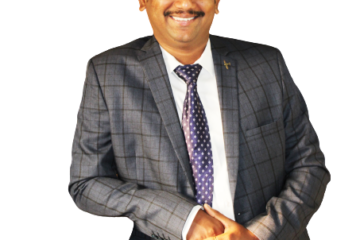TheCconnects: Can you tell our readers a little about your professional journey & how did you come to your current role/position?
Jonathan Downing: Necessity.
Throughout my professional journey, I have consistently dedicated myself fully to developing and implementing solutions for the challenges faced by businesses. My career in IT began at the age of 15, and by 23, I had begun consulting. I quickly became an asset to each long term employer, a ‘golden goose,’ until they sought to restrict progress over the years or overload me. Despite presenting numerous growth opportunities to my employers, they chose not to engage in fair business practices with me. Consequently, I realized the necessity of forging my own path and establishing my own companies.
I attempted to bring my friends along on this entrepreneurial venture, but their lack of genuine commitment and integrity became apparent as they resorted to theft and contract violations. Transitioning from abusive employment situations to dealing with deceitful behavior from colleagues was deeply troubling. Yet, I refused to let these setbacks deter me from pursuing and realizing my dreams.
In my current role, I focus on ensuring that business operations run smoothly and cost-effectively, which has afforded me a comfortable lifestyle. However, I consider this just the beginning of my professional journey. While many professionals boast titles and affiliations with large companies possessing revenues vastly exceeding my own, their experiences do not match the depth of practical, hard-won knowledge I’ve gained through establishing and managing my businesses. My achievements might not seem notable to some, perhaps even amusing. Yet, becoming a genuine self-made millionaire by age 25 without any external financial support is a significant feat. I’ve bootstrapped my way to success, overcoming formidable challenges and injustices along the way. I prefer not to highlight this aspect of my journey, as it can sometimes create misconceptions.
It’s essential to understand in business that success isn’t just about what one accumulates but about what one contributes to achieve and maintain it. Experienced business leaders recognize that downturns and losses are part of the cycle, viewing these challenges not as misfortunes but as opportunities to persevere and succeed with dignity.
TheCconnects: Who has influenced you the most in life and why?
Jonathan Downing: Adversity.
You asked about “who,” but it’s the “what” that’s truly important. I never had anything handed to me in life, but if I had, I wouldn’t have gained the strength to chase my dreams or the wisdom to value them. I choose not to single out anyone as the source of “adversity” in my life. Those individuals, often unaware of their impact, were merely acting according to their nature or immediate needs. To label them as “adversaries” would only serve keep them as negative spirits. Instead, they are better seen as lessons and stepping stones, with some offering the harshest lessons about faith, love, and family.
However, when considering a positive influence, I must pay homage to my nation’s founding fathers. Their pursuit of freedom, a fundamental human right, deeply inspires me. The bold experiment in liberty they embarked on, standing against a “corrupt crown” centuries ago, provides invaluable lessons. In my engagement with this particularly contentious issue, especially considering my roots, it’s essential to learn to never become a tyrant or a rebel without a cause.
TheCconnects: What are the biggest challenges you have faced in your life & how did you overcome them?
Jonathan Downing: Dishonesty.
As the saying goes: “Fool me once, shame on you. Fool me twice, shame on me”. However, if kindness is misconstrued as weakness, should we bear the shame, or does it rightly belong to those who, out of their own character flaws, seek to exploit that kindness? I firmly believe the shame is theirs alone. Why should we lower ourselves to their level and lose our essence in the process?
In a leadership role, especially within the business realm, exhibiting kindness can be misinterpreted. Leaders are tasked with looking far ahead—beyond the day-to-day, week-to-week, or month-to-month. Those who merely “go along to get along” without a long-term vision will likely find their leadership short-lived. A leader must navigate the course, maintaining focus on the objective. This may require them to appear stoic, harsh, detached, or cold, but it does not mean they lack compassion or would hesitate to sacrifice for their team.
One of the most significant challenges I’ve faced is learning that in business, doing the right thing can be twisted by those with hidden agendas to seem incorrect, especially in Cybersecurity. Navigating through dishonest narratives demands patience and unwavering integrity. Ultimately, the truth prevails, even if falsehoods may temporarily outpace it. However, the value of maintaining integrity is beyond measure.
TheCconnects: What lessons you have learned from your professional career?
Jonathan Downing: Integrity.
Growing up, leaders who were meant to serve as role models often told me I was lacking something, or not quite ready. When I inquired what was missing, or what I was supposedly chasing, they seemed perplexed. It was their responsibility to guide me, yet they faltered. I eventually realized my strong work ethic and leadership skills intimidated them. It wasn’t that I was directly challenging them; rather, my adherence to authenticity, accountability, integrity, and honor unnerved them. This was never my intention, yet I found myself questioning why I should apologize for embodying positive traits. Consequently, I was subjected to ridicule and set impossible tasks as if I were the subject of inside jokes—until I succeeded against the odds, or was unbothered by their humiliation ritual. Despite being a valuable asset, I was never fully accepted into their circle. I suppose that was a good thing.
In my early 20s, while I was billed at senior consultant rates for Fortune 500 companies, my work-life balance was sabotaged, and efforts were made to ruin my career prospects midst a challenging family situation. It was baffling; I was merely fulfilling their requests and taking full accountability for my actions. Over time, I realized they a future for me brighter than I had envisioned for myself, and they felt compelled to hinder my progress. I do not understand why, we could have shared.
Despite these obstacles and having left my previous employers with valuable products and referrals (from which they still profit), I had no choice but to become self-employed or face financial ruin, thanks to their attempts to tarnish my reputation post-employment. Reflecting on this journey, I understand now how I managed to become a millionaire in my mid-twenties: through courage and strategic planning. Coming from a working-class background, I had no financial support or influential connections. I relied on my perfect credit score and liquidated my 401(k) from my first job to build everything from scratch, aiming to secure a better future for my family and serve as a positive role model.
Unlike those with patrons or connections, I faced and overcame obstacles on my own, save for a brief period working with individuals who ultimately betrayed my trust. I bear the scars, possess every receipt, and have endured the scars. All to ensure my children won’t have to endure the hardships I faced. The American dream is very much alive; you don’t need to be asleep to believe in it. However, there’s a lot of pitfalls. I possess enough material to pen a book on its nightmares and systemic obstacles, creating a compelling narrative rich with abundant stories. You might suspect these tales are fabricated or borrowed from films or literature. Yet, they are genuine, backed by receipts and scars that attest to their authenticity. Perhaps that would be a good book.
TheCconnects: What do you see as the biggest challenge for brands in the digital space?
Jonathan Downing: Algorithmic positioning.
All information systems are overseen by managers – some effective, others not so much. These managers often act as gatekeepers, demanding not only a toll for access, but lifting their own preferences to the top, while suppressing their dislikes to the bottom. Unfortunately, truth isn’t always liked, so that may present some unique challenges for honest progress. Echoing Benjamin Franklin’s timeless assertion, death and taxes remain life’s certainties. A notion that may hold true even in a supposed digital utopia. Mining and administrative fees are our modern inevitability, unavoidable in our efforts to achieve balance, but these algorithms and watchers require transparency. The premise of a truly free market must equally share between cultures, yet the complete digital transformation of our ecosystem to enforce such a harmony remains elusive. We are still grappling with integrating fairness into big data systems and understanding its practical implications.
The integrity of a free market is subtly undermined by hidden agendas across various sectors, including banking, insurance, internet service providers, social media, and educational institutions. These sectors encounter critical junctures, congested with outdated practices and vulnerable to malicious actors. While there’s immense value in traditional wisdom, its harmonization with digital technology is crucial for future progress. Challenges arise when individuals seek to unfairly influence the scales of justice and impose arbitrary classifications that affect personal experiences and growth, all without transparency. Addressing these issues is essential for preserving freedom and safeguarding customers and brands in modern digital space.
TheCconnects: How your product/solution can help to resolve the pain points of your customers?
Jonathan Downing: Truth
My product offers a unique combination of Cybersecurity consulting services and vendor management, designed to identify and mitigate threats before they can significantly impact information systems or executive teams. With Moore’s law, the complexity in our systems is increasing exponentially. Similarly, Murphy’s law suggests that with more complexity, the potential for things to go wrong escalates. This complexity can jeopardize the confidentiality, availability, and integrity of people, processes, and technology. Every industry needs a comprehensive and actionable understanding of how to address both known and unknown risks. This is precisely what I achieve with OpSec Digital’s Cyber Terrain Model, providing a strategic framework to navigate and mitigate cyber risks effectively.
TheCconnects: What do you do in your free time?
Jonathan Downing: Balance.
I’m passionate about automobiles, music, technology, fitness, and managing my businesses. Even in my free time, I believe it’s crucial to maintain forward momentum quite possibly to a fault. I strive to blend these interests into a routine in order to make it enjoyable. By doing so, work can feel like leisure. With the right balance, work-time may also feel like free-time.
TheCconnects: Do you have any advice for those who want to be an entrepreneur/C-suite executive?
Jonathan Downing: Passion.
As an entrepreneur, having a product or service is crucial for taking control of your life. It’s essential that this product or service aligns with your passions. Entrepreneurship demands your undivided attention, similar to the responsibilities of a C-suite executive, requiring mastery in your role and contribution to the business. Passion makes this journey more manageable and fulfilling. Nothing diminishes customer satisfaction or team morale more than dealing with someone who lacks enthusiasm, follow-through, or proficiency in their work. While the idea of being an entrepreneur or a C-suite executive might seem glamorous, the reality is often challenging. For entrepreneurs, the fundamental principle is self-reliance; no one will rescue you. For C-suite executives, remember that while your budget might be respected, it does not inherently earn you personal value within the organization.
Connect with Jonathan Downing on LinkedIn here.



